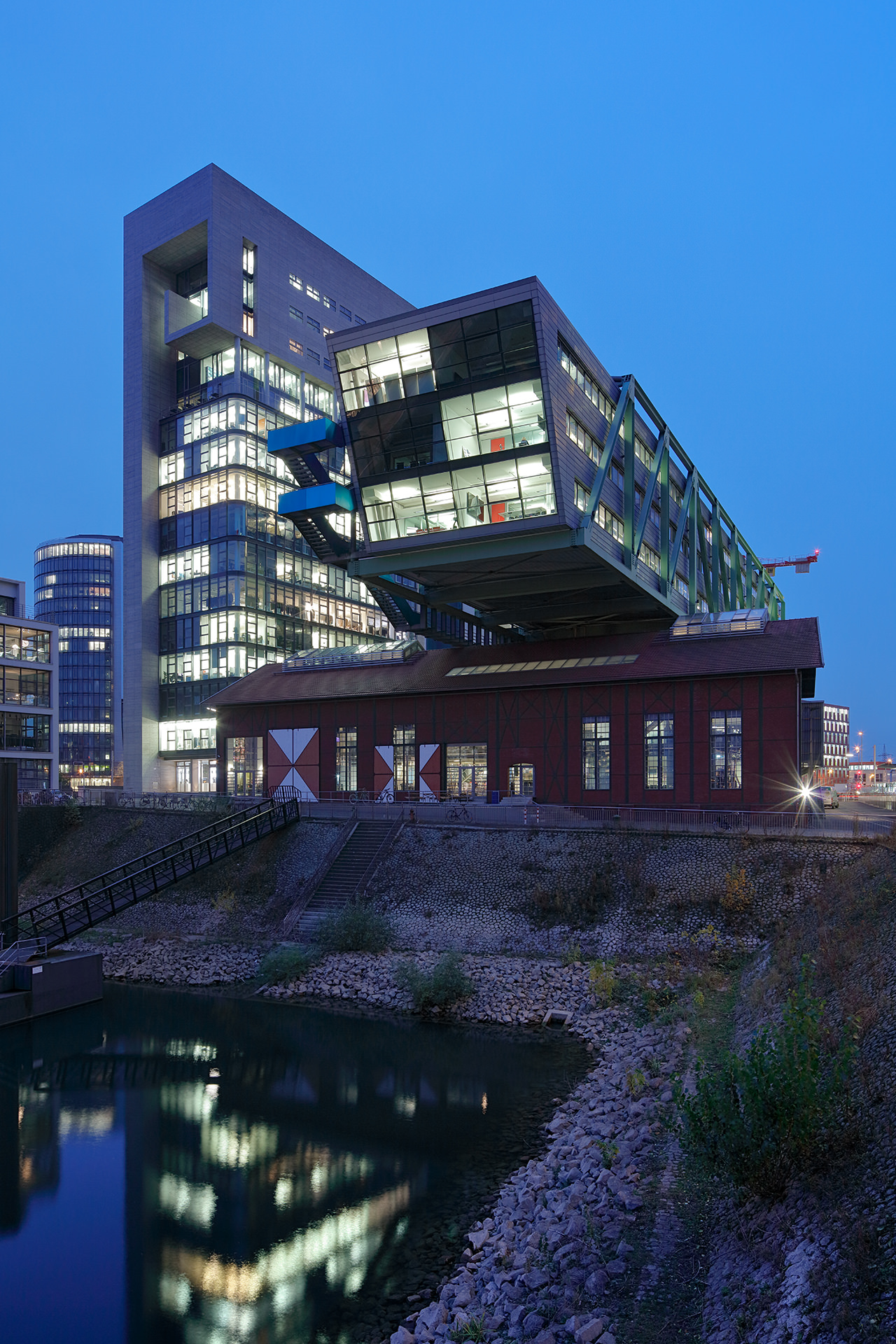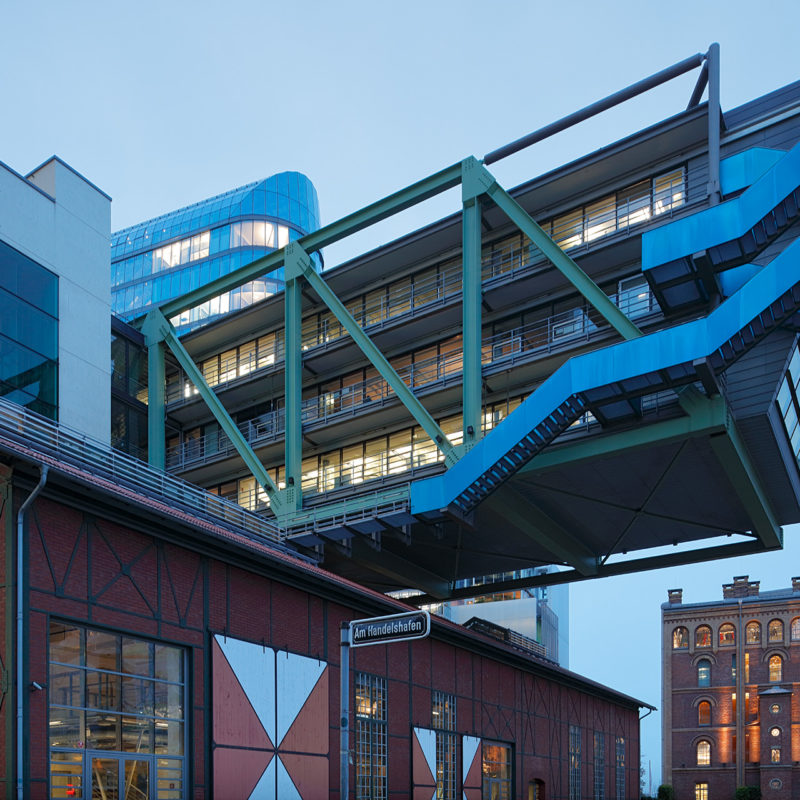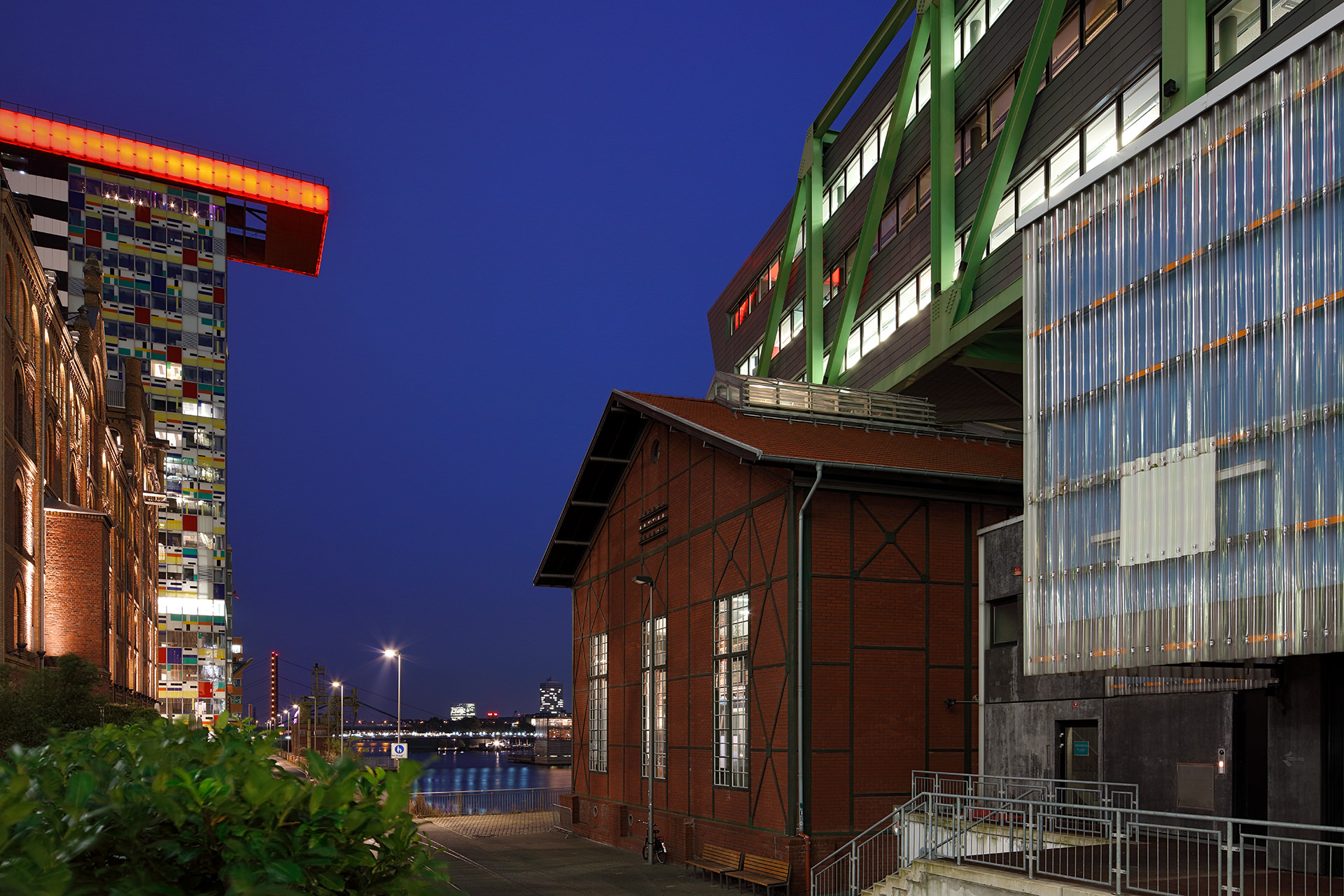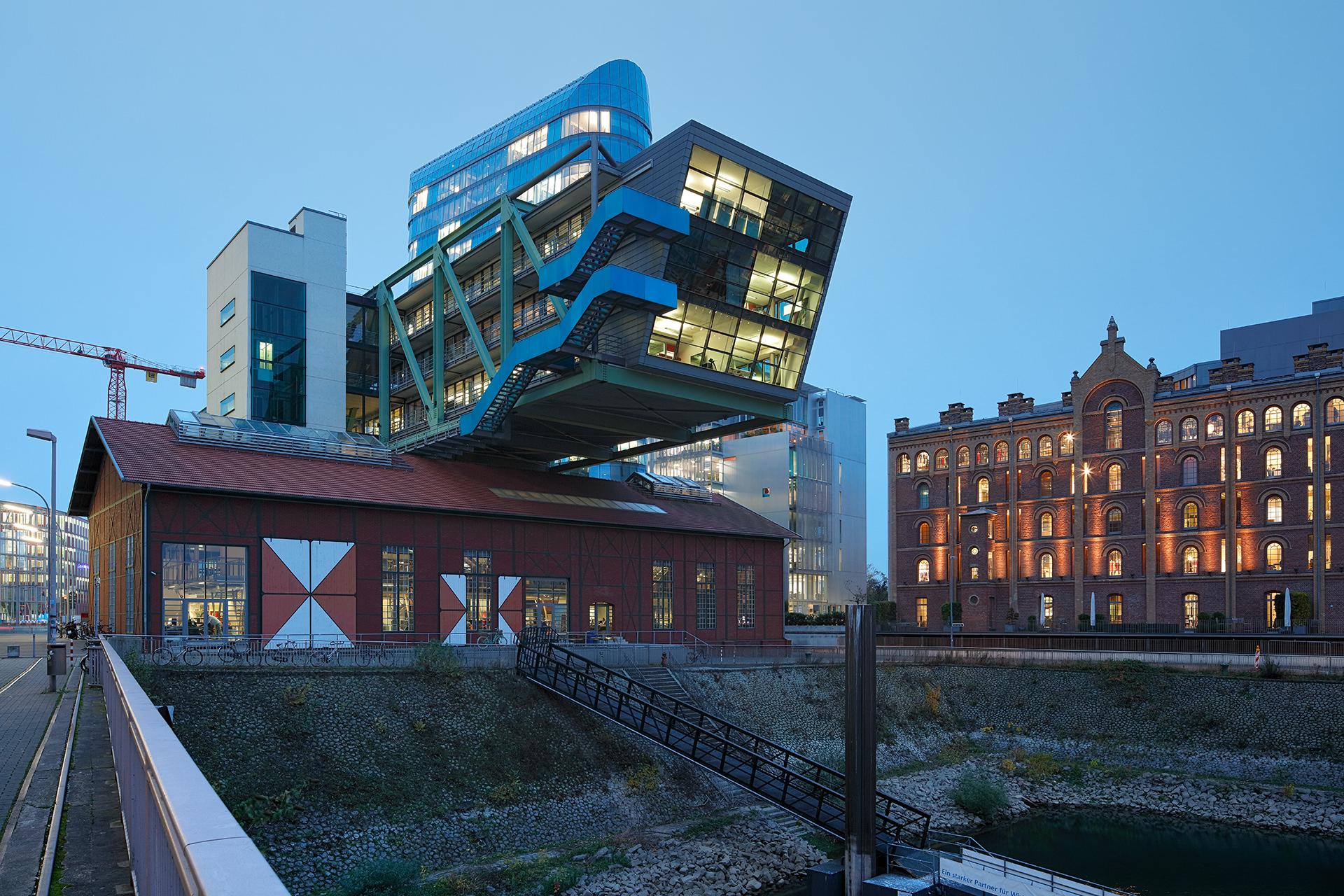Wolkenbügel, Dusseldorf

Landmark in Dusseldorf harbour
The port of Dusseldorf has transformed itself from a trading centre to a reloading point for ideas. David Chipperfield, Frank Gehry and Renzo Piano are among the star architects whose buildings extend the formal language of architecture – thus creating a home for creativity: the Media Harbour. The Wolkenbügel is the extraordinary landmark at its southern end.


Wolkenbügel Facts

WOLKENBÜGEL IN DETAIL
Room in suspension
In 1926 the Wolkenbügel caused a sensation at the Great Berlin Art Exhibition. With his design, the Russian sky stormer, graphic artist and architect El Lissitzy (1890-1941) created a radical building. As a counter-design to the New York skyscrapers, he discovered the floating horizontal. Wansleben Architekten (Cologne) realized the bold concept around 80 years later at the turn of the millennium. The result: a 35-metre long, crane-like cantilevered bridge girder, which connects the most modern office and event areas on 7,293 m² in a self-supporting manner.

Anchorage for media
In times of structural change, Dusseldorf’s commercial port threatened to silt-up. But the city, which carries the anchor in the city coat of arms, created a way to transfer the shipping heritage into a digital future with the vision of the Media Harbour. The port advanced to become a rolemodel district, which today is home to media, communication, advertising and gastronomy. The 2,964 m² site at the commercial port 2-4 is part of this vision, which is embodied outstandingly by the Wolkenbügel consisting of a bridge girder, an event hall and the listed pump house, which has been converted into an office building.

Quickly at the quay edge
The Media Harbor has excellent connections by tram, bus and individual transport. It takes fifteen Minutes by train from the main railway station to the Media Harbour, and the Rhine railway runs every ten minutes to the new tram stations “Speditionsstraße” and “Medienhafen, Kesselstraße”.
